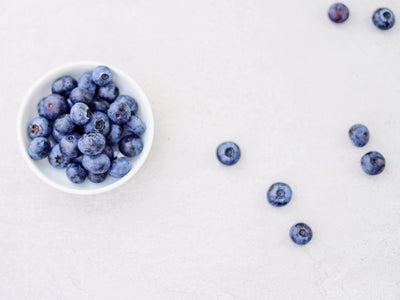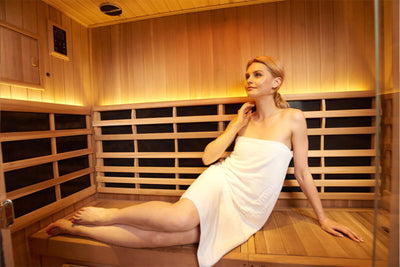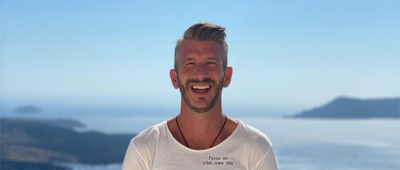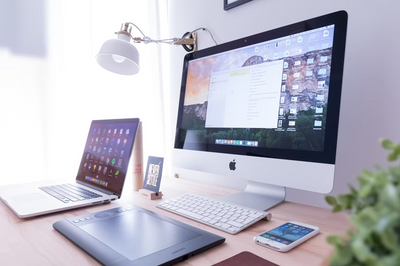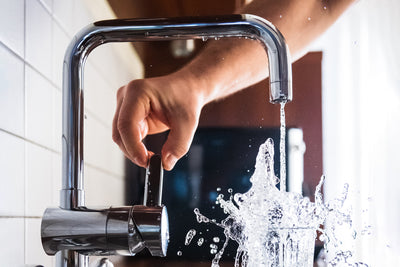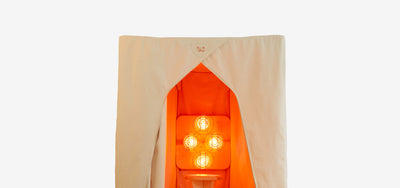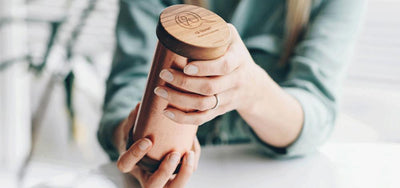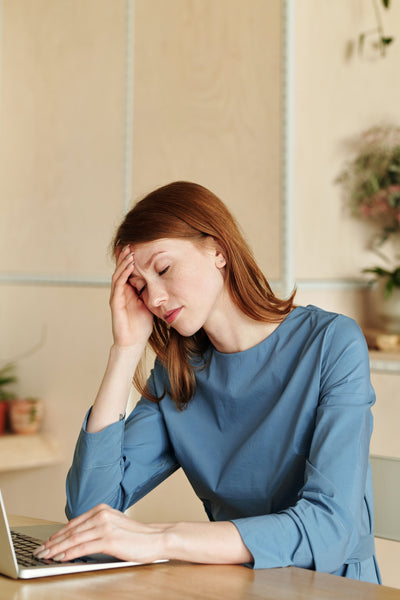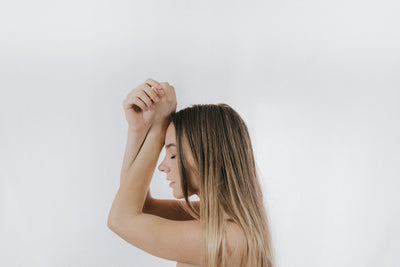How the UK's leading biohacker knocked 10 years off his biological age
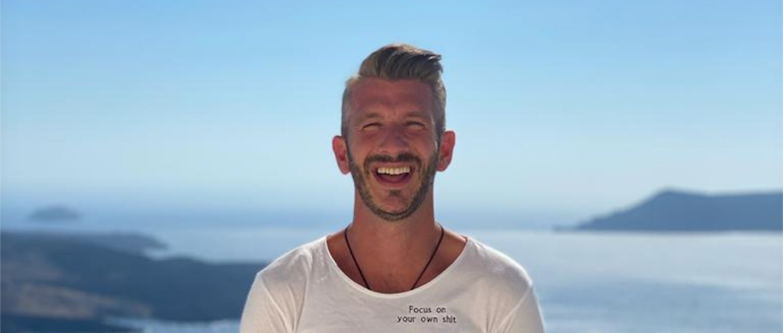
Biohacking. To the uninitiated, the word might sound mysterious and mechanical. But to those in the know, biohacking is a results-driven route to better health – a series of hacks, devices, supplements and practices designed to help you perform at your peak and feel your very best.
One man who knows all about the benefits of biohacking is Tim Gray. Dubbed 'the UK's leading biohacker', Tim transformed his health, going from bed-bound by chronic illness at 32 to looking and feeling better than ever as he approaches his mid-forties (and with a biological age almost 10 years younger to boot).
As part of his mission to educate and empower others, Tim founded The Health Optimisation Summit, Europe's largest health conference showcasing the best in biohacking, nutrition, fitness and functional and preventative medicine.
Ahead of this year's Summit – which we'll be exhibiting at – we caught up with Tim about beating brain fog, the difference between biohacking and traditional medicine – and why Mother Nature always knows best. Plus, Tim shares every little biohack in his daily routine...
How did you get into biohacking?
10 years ago, I got ill. I was working 18 hour days running a marketing agency, shoving any old crap in my mouth, then going out and getting completely wasted. It was a perfect storm.
It started with things like bloating and food intolerances and brain fog, and escalated to constant UTIs, kidney stones, chronic fatigue and anxiety. Things were really, really bad, but doctors couldn’t tell me what was causing my issues. My test results were all coming back ‘fine’, but I didn’t feel fine.

Eventually, I started researching my symptoms myself to try to get to the root of each one. I then started tracking various data points in my health to see if what I was changing was making any difference – ‘biohacking’ before I even really knew what that meant.
I realised there were lots of people out there like me, popping supplements and trying different things to optimise their performance. I sold the marketing agency that tied me to an office, and started the ‘Biohacker London Meetup’ – which grew into the Health Optimisation Summit.

How has biohacking transformed your health? Are there any measurable changes?
I’ve gone from being extremely sick in my early thirties to looking and feeling better than ever, happy and healthy. Thanks to biohacking, my biological age now sits at 34.5, even though I'm actually 43.

What would you say are the foundations of biohacking – and the tools/practices that anyone new to biohacking should try?
Biohacking isn’t about cyborgs or being superhuman, it’s about restoring homeostasis to the body and optimising your health.
People don’t realise the power of the basics; the simple biohacks that come for free. So, things like seeing natural sunlight in the mornings, turning your Wi-Fi off at night, grounding yourself by being barefoot in nature and making sure you’re getting enough sleep. All of these things cost nothing, and yet can make a massive difference to your health.
A lot of biohacking also comes from within – sitting in quiet reflection, or walking alone in nature, phone turned off, or meditating, eyes closed, even if just for 10 minutes. You can have the standing desk and the red light therapy devices and the supplements, but if your mind isn’t in the right place, you’re setting yourself up to fail.
How does biohacking differ from ‘traditional’ medicine or healthcare?
Biohacking doesn’t claim to replace traditional medicine. But whereas conventional medicine is generally reactive, and focused on treating symptoms rather than looking for the root cause, biohacking is more preventative in approach – making tailored changes to your lifestyle in order to optimise your health and not get sick in the first place.
The other big difference with biohacking is its emphasis on tracking your results. I always say, ‘you can’t hack what you don’t track’. Biohackers believe you need data and analysis to effectively track and hack improvements. Whether it’s measuring EMFs, monitoring air quality, or tracking your hormones, by testing and tracking your health and environment, you can prevent issues before they become an issue.
Personally, I like to collate my data into a spreadsheet and correlate my results across all the devices so that I can optimise even more effectively and efficiently.

Is it important to you to research and try something before recommending it to your followers?
Absolutely - I read multiple studies a day, as well as books and podcasts by leading experts. Studies are great for confirming that something works in an isolated setting, but for me, nothing beats what actually works for us as individuals in the real world. That’s why I always follow the results. And if I don’t get the results I’m looking for, I won’t recommend it to my followers.
I have no financial interests in my opinions and I don’t get paid for any of the content I share. Science is constantly evolving, but as far as I can tell, it consistently proves that Mother Nature knows best.

Talk us through what a typical day might look like for you and how you incorporate biohacking into your daily routine…
MORNING
It starts the moment I wake up. I’ll open my curtains and windows to allow the natural light and fresh air in, and before I do anything else, I’ll hydrate with reverse osmosis filtered water with hypertonic and a binder called Chlorella added to it.
The first supplements I take are my non-fat-soluble supplements, like DAO enzyme. I’ll also take Trimethylglycine (TMG). If I have time, I’ll make a bullet-proof-style butter coffee with some collagen thrown in to have with my fat-soluble supplements.
I eat roughly 3000 clean calories a day, and start with a hearty breakfast of nitrate-free bacon, duck eggs, and a whey protein shake with A2 dairy in it.
I’ll then do my inner work, such as meditation, reflection, affirmations, and some breathwork with my Airofit device, which helps me track and quantify my results.

I work with a functional practitioner to help rebalance my body, and I also use the Vitruvian Trainer every day for a 20-minute workout. I might also go to the gym later on, working through a specific protocol to help realign my posture and achieve my personal fitness goals.

I do 2 hyperbaric oxygen sessions a week, and when I’m in there I like to read. Then I’ll jump in my red-light stack.
I also use a Neti Pot with saline solution a few times a week, with colloidal silver and iodine, which keeps my sinuses clear and healthy.
AFTERNOON
I work from a standing desk to keep my lymphatic system flowing, with a rebounder next to my desk and a grounding pad to keep my wrists on at all times.
I like to have what I call ‘walking meetings’ outdoors if possible, where I’ll take my shoes off to walk barefoot on the grass to connect with the earth.
Lunch is usually sustainably-farmed, local, organic meat – maybe a rib-eye steak or a chicken breast with some olive oil and greens.

EVENING
I find I do much better on a predominantly meat-based diet, so dinner will be something similar to lunch. I don’t like to eat dinner much later than 6pm ideally, just before sunset.
Evenings are about winding down for a good night’s sleep, so there’s no lights on after 7pm apart from red-toned lights, and I’ll have my blue-blocking glasses on.
When I go to bed I have a kill switch that turns off all the Wi-Fi and wall sockets in my house. I also turn my phone off completely. I like to sleep with blackout blinds and a facemask, and I tape my mouth at night to make sure I’m breathing properly. Then I wake up and do it all again!

You founded the Health Optimisation Summit, which brings together biohacking, nutrition, longevity, fitness and functional medicine. The next Summit is coming up soon, from 28-29 May (and we’re looking forward to exhibiting there!). What are you most excited about for this year’s Summit and why?
We’ve got 105 incredible exhibitors this year (including Conscious Spaces!). There’s so many amazing brands and products people will be able to meet and experience, ranging from Dry Farm Wines to the Hapbee device and Spermidine supplements. There’ll be the best standing desks, red light therapy and awesome natural skincare, as well as constant glucose monitors, reverse-osmosis water filters, home urine testing brands and the Sensate vagal nerve stimulator.
I’ve spent the last 3 years personally approaching, testing and choosing each product or brand for the event. If I had to, I’d say my favourite device at the show is probably the BrainTap headset, which uses light and sound frequencies to create a meditative state. When I’m using it I almost feel like I’m dreaming while I’m awake.
There’ll be some brilliant speakers too, from Ben Greenfield to Dr Jolene Brighten talking about female hormone optimisation. I’m really looking forward to hearing Diana Rogers from Sacred Cow give her views on healthy, clean meat and sustainable supply chains. All in all, it’s going to be a super enlightening couple of days. Looking forward to seeing you there!
















